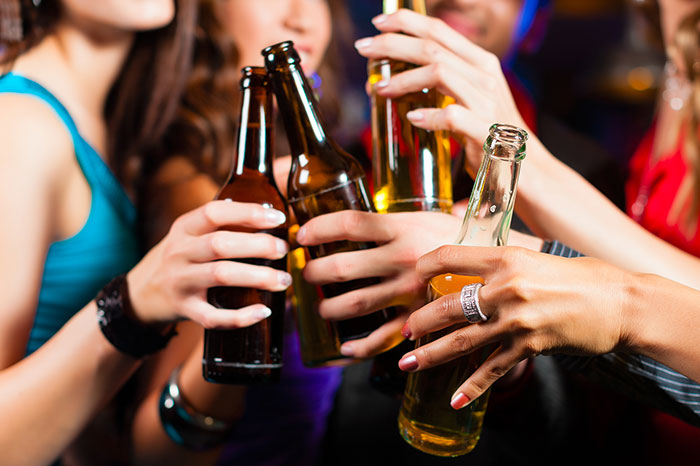The police arrive at a suburban home in response to reports of a late night underage drinking party where they find a crowd of 75 youths in and outside the home. Fearful mostly of what their parents will do if they are caught, the underage drinkers (…you guessed it…) run in all directions. The police do their best to round them up in the dark to make sure they get home safely. Running after one of the youths, an officer falls down a dark stairway behind the house and suffers a fractured ankle.
Our cases involving injured officers or guests at underage parties have two recurring storylines.First, the parents (who are often home at the time of the party) claim to have no idea what is going on in their homes. Second, no one knows who supplied the alcoholic beverages. The case you just read about is no exception. The parents were home. They testified they did not supply, control, or even know that there was alcohol at their child’s party. The father went even further, boldly testifying that it was no concern of his if a drunken teenager got hurt at his home. He would not even agree that he needs to keep his home safe for visitors.Needless to say, we were pleased to collect $125,000 on the officer’s claim against the parents.
Underage drinking parties in homes endanger our youth, all of us on the road and our police officers who respond to these parties. According to the Centers for Disease Control and Prevention, people between the ages of 12 and 20 drink 11% of all alcohol consumed in the U.S. – 90% of which is consumed in the form of binge drinking. In 2010 there were 189,000 emergency room visits involving persons under 21 years old linked to alcohol. Worse yet, each year 4,300 youths die due to alcohol consumption.
Despite these alarming statistics, current Massachusetts law only allows us to hold the parents civilly responsible for allowing these parties in their homes if we can first prove the parents supplied or controlled the alcoholic beverages. However, just as we did in the case you just read about, we have successfully made recoveries on the strength of arguments that there were other dangerous conditions, which contributed to the injury, e.g., lack of lighting, broken stairs, or missing railings.
- Steven M. Ballin, Esq
Our cases involving injured officers or guests at underage parties have two recurring storylines.First, the parents (who are often home at the time of the party) claim to have no idea what is going on in their homes. Second, no one knows who supplied the alcoholic beverages. The case you just read about is no exception. The parents were home. They testified they did not supply, control, or even know that there was alcohol at their child’s party. The father went even further, boldly testifying that it was no concern of his if a drunken teenager got hurt at his home. He would not even agree that he needs to keep his home safe for visitors.Needless to say, we were pleased to collect $125,000 on the officer’s claim against the parents.
Underage drinking parties in homes endanger our youth, all of us on the road and our police officers who respond to these parties. According to the Centers for Disease Control and Prevention, people between the ages of 12 and 20 drink 11% of all alcohol consumed in the U.S. – 90% of which is consumed in the form of binge drinking. In 2010 there were 189,000 emergency room visits involving persons under 21 years old linked to alcohol. Worse yet, each year 4,300 youths die due to alcohol consumption.
Despite these alarming statistics, current Massachusetts law only allows us to hold the parents civilly responsible for allowing these parties in their homes if we can first prove the parents supplied or controlled the alcoholic beverages. However, just as we did in the case you just read about, we have successfully made recoveries on the strength of arguments that there were other dangerous conditions, which contributed to the injury, e.g., lack of lighting, broken stairs, or missing railings.
- Steven M. Ballin, Esq


 RSS Feed
RSS Feed
